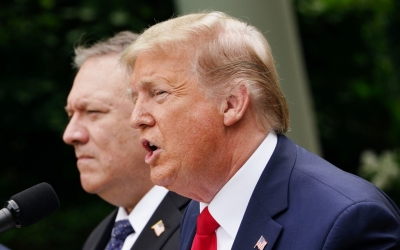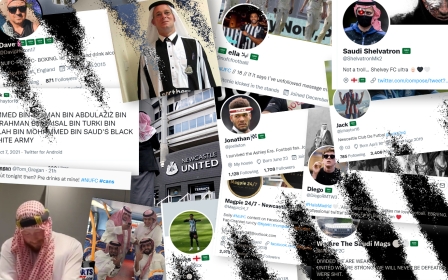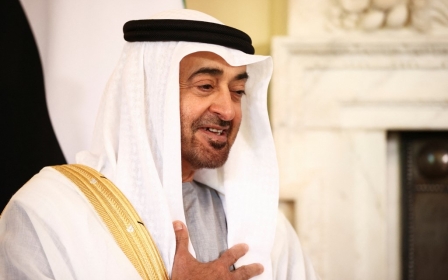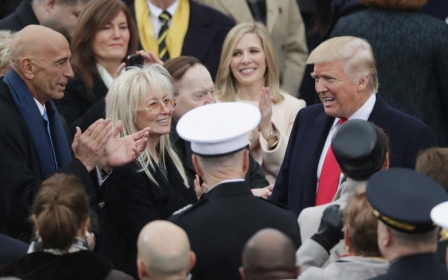Saudi royal family gifted Trump fake exotic animal furs: Report
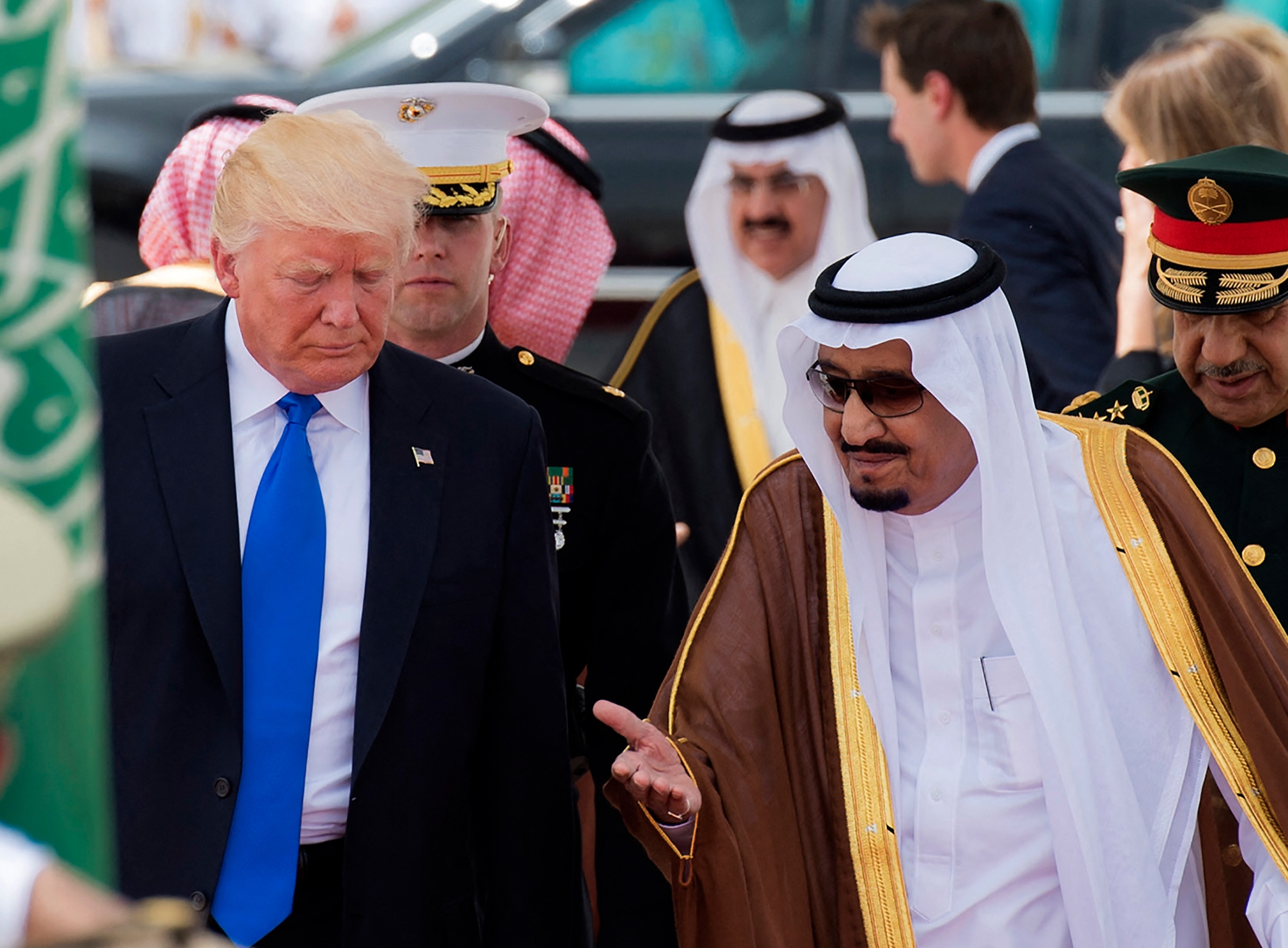
Saudi Arabia's oil-rich royal family gifted former President Donald Trump with three robes made from white tigers and cheetahs in 2017, which would have been in violation of the US's endangered species laws.
However, it turns out the previously undisclosed gifts were fake, according to a report from The New York Times.
The Saudi royals - with an estimated fortune of $110bn - showered the former president with 82 gifts when he visited the kingdom in May 2017.
After close inspection, the gifts - which were revealed in findings disclosed via the Freedom of Information Act - were found to have been dyed to resemble the patterns of the animal furs.
"Wildlife inspectors and special agents determined the linings of the robes were dyed to mimic tiger and cheetah patterns and were not comprised of protected species," Tyler Cherry, a spokesman for the Interior Department, told the newspaper.
The Trump administration had failed to properly disclose the gifts, according to the New York Times, before eventually handing them over on 19 January 2021, the last day of Trump's presidency.
In addition to the furs, the other most expensive gifts given by the Saudis included three swords and three daggers, which never appeared in the State Department's annual filings for gifts, a legal requirement for the Trump administration.
The Interior Department also told The Times that it was investigating a handle of one of the daggers, which it said “appears to possibly contain tooth or bone of some variety”, possibly the materials of elephant tusk. It said that further analysis would be required.
The kingdom also gave Trump's son-in-law and senior adviser Jared Kushner two swords and a dagger worth nearly $48,000, which he ended up paying the US government for after leaving office.
Embarrassing episode
Riyadh enjoyed warm ties with the Trump administration, and the US president's first foreign visit was to the kingdom. Washington had provided the Gulf country with billions of dollars in arms sales, and also shielded criticism against the country over the killing of Saudi journalist and Middle East Eye columnist Jamal Khashoggi.
It is unclear whether Saudi Arabia knew about the authenticity of the furs or whether they had also been deceived, yet the incident is an embarrassing development for the Saudis, Bruce Riedel, a senior fellow at the Brookings Institution and an expert on Saudi-US relations, told The Times.
"The two most important things for them is to look like they’re aboveboard world actors, and are rich and show their wealth," he said.
The Saudi embassy in Washington did not respond to MEE's request for comment on the gifts.
The State Department did not comment on the furs specifically, however, spokesperson Ned Price said in an emailed statement to MEE that it "takes seriously its role in reporting the disposition of certain gifts received by US Government employees".
"With that responsibility in mind, we conduct the necessary due diligence before filing the required reports with the Federal Register. As we noted in the most recent report, we are investigating the whereabouts of gifts that are unaccounted for and the circumstances that led to their disappearance," he said.
Trump continued to receive gifts from Saudi Arabia, as well as other Gulf countries, throughout his presidency. In 2019, he received a total of $24,000 in gifts from leaders in the Middle East.
Middle East Eye delivers independent and unrivalled coverage and analysis of the Middle East, North Africa and beyond. To learn more about republishing this content and the associated fees, please fill out this form. More about MEE can be found here.


